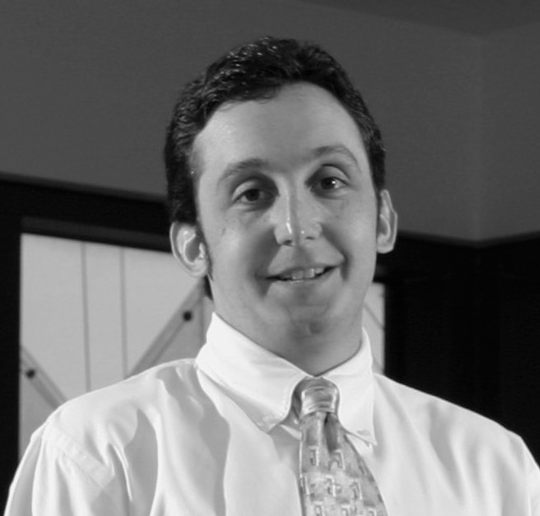Keynote
Utilizing Deep Brain Stimulation to Treat Human Disease:
Changing Abnormal Brain Conversation
by Michael S. Okun, M.D.Co-Director Parkinon's Disease and Movement Disorders Center
University of Florida, Departments of Neurology, Neurosurgery, and
Psychiatry, McKnight Brain Institute Many human central nervous system diseases are associated with abnormal patterns of physiologic activity in brain circuitry. One group of diseases involves abnormalities in a family of 5 parallel circuits which control both motor and non-motor functions. These circuits belong to a group of structures called the basal ganglia. Based on a plethora of animal and human research, we have learned that rates and patterns of electrophysiological activity are abnormal in many of these basal ganglia circuits. We can change the rates and patterns of activity by implanting brain stimulators into one of many targets including the thalamus, subthalamic nucleus, globus pallidus, internal capsule, nucleus accumbens, and other regions. We can place these devices in an operating room setting utilizing advanced brain imaging, stereotactic targeting, microelectrode recording, and macrostimulation. The placement will often need to be within a millimeter or less of the optimal target to improve symptoms and avoid side effects. By applying electrical stimulation in these regions we can change the abnormal brain conversations and effectively treat many diseases including Parkinson's, tremor, dystonia, and obsessive compulsive disorder. After placement the electrodes remain implanted and adjustments can be made to stimulator settings (pulse width, frequency, amplitude) for changes in symptoms over time. The initial focus of brain stimulation was on motor improvements and motor circuits, however depending on the location of an electrode, cognitive and limbic circuitry can also be affected. Positive and negative changes in mood and affect can be precipitated, especially by misplaced electrodes. Deep brain stimulation can lead to changes such as laughing, crying, anxiety, and fear (as well as a host of other effects). We are challenged to understand both the motor and non-motor effects of brain stimulation, and to design electrodes and devices to improve bothersome symptoms and to avoid side effects. We are currently challenged to improve 1-patient selection, 2- implantation techniques, 3- speed and accuracy of intra-operative procedures, 4- battery life and battery re-charging, 5- lead design, 6- lead programming, 7- and to develop remote programming and cycling strategies to improve device performance. We are also challenged to adapt and apply this technology to help patients with other diseases or problems. Bio:
 Michael S. Okun, MD, Co-Director of the Movement Disorders Center,
neurologist and movement disorders expert, received his B.A. in
History from Florida State University, and his M.D. from the
University of Florida where he graduated with Honors. Dr. Okun went
on to complete an internship at the University of Florida and a
residency in Neurology. He then completed two fellowships at Emory
University, one in movement disorders and a second in microelectrode
recording and surgical treatments for movement disorders. He was
recruited back to the University of Florida in 2002 to create the
University of Florida Movement Disorders Center. The Center, which he
co-directs, has over 20 interdisciplinary researchers in all areas of
Parkinson's disease and movement disorders. The center is unique in
that it provides interdisciplinary care for patients, as well as
important bench and translational research.
Dr. Okun is supported by grants from the National Institutes of Health
and the Michael J. Fox Foundation for Parkinson's Disease Research.
His main area of focus is on programmable brain implants for
Parkinson's disease, tremor, dystonia, complex movement disorders, and
behavioral disorders such as Obsessive Compulsive Disease. Dr. Okun
and the team at the University of Florida also have two NIH projects
exploring the cognitive, behavioral, and mood effects of brain
stimulation.
Dr. Okun is also a faculty member in the Department of History at the
University of Florida, and, in addition to founding and administrating
the History of Medicine lecture series, he teaches an
undergraduate/junior honors course on the History of
Medicine. Additionally, he has recently published a book of prose and
poetry about the medical school experience, Lessons from the Bedside.
MS Word format
text format
Michael S. Okun, MD, Co-Director of the Movement Disorders Center,
neurologist and movement disorders expert, received his B.A. in
History from Florida State University, and his M.D. from the
University of Florida where he graduated with Honors. Dr. Okun went
on to complete an internship at the University of Florida and a
residency in Neurology. He then completed two fellowships at Emory
University, one in movement disorders and a second in microelectrode
recording and surgical treatments for movement disorders. He was
recruited back to the University of Florida in 2002 to create the
University of Florida Movement Disorders Center. The Center, which he
co-directs, has over 20 interdisciplinary researchers in all areas of
Parkinson's disease and movement disorders. The center is unique in
that it provides interdisciplinary care for patients, as well as
important bench and translational research.
Dr. Okun is supported by grants from the National Institutes of Health
and the Michael J. Fox Foundation for Parkinson's Disease Research.
His main area of focus is on programmable brain implants for
Parkinson's disease, tremor, dystonia, complex movement disorders, and
behavioral disorders such as Obsessive Compulsive Disease. Dr. Okun
and the team at the University of Florida also have two NIH projects
exploring the cognitive, behavioral, and mood effects of brain
stimulation.
Dr. Okun is also a faculty member in the Department of History at the
University of Florida, and, in addition to founding and administrating
the History of Medicine lecture series, he teaches an
undergraduate/junior honors course on the History of
Medicine. Additionally, he has recently published a book of prose and
poetry about the medical school experience, Lessons from the Bedside.
MS Word format
text format
![[iswc logo]](wearman-small.gif)
